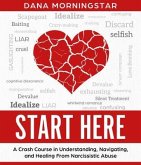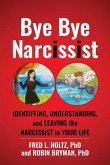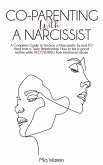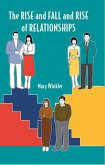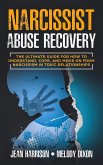The FOG is an acronym that stands for "Fear, Obligation, and Guilt". These three emotions are often how narcissists, sociopaths, and other types of emotional manipulators go about controlling others.
However, this type of destructive manipulation isn't just limited to narcissists and sociopaths. There is no shortage of people with well-intended bad advice out there who unintentionally fall into the FOG as well and push targets of abuse into keeping the relationship going.
The FOG is one of the main reasons that people stay "stuck" in abusive relationships for so long, why they continue to get involved with abusive people, why they feel they are the problem, and why they tend to feel that the abuse is somehow their fault. When a person is being manipulated, they have a hard time figuring out who has the problem, what is normal, what is problematic, and if their wants, needs, and feelings are valid. The disastrous effects of being lost in the FOG are confusion, crazy-making, people-pleasing, and an erosion of boundaries. What makes this well-intended bad advice so damaging is that, on the surface, it seems like good advice - especially if it's coming from people who seem to have our best interests in mind, such as friends, family, church members, support-group members, or a therapist.
Some examples of this well-intended bad advice that comes from other people is: "Who are you to judge?", "No one is perfect", "You need to forgive them", "She's your mother, you need to have a relationship with her...she's not getting any younger you know", and "Commitment is forever".
This audiobook dives into these and other commonly confused topics such as:
However, this type of destructive manipulation isn't just limited to narcissists and sociopaths. There is no shortage of people with well-intended bad advice out there who unintentionally fall into the FOG as well and push targets of abuse into keeping the relationship going.
The FOG is one of the main reasons that people stay "stuck" in abusive relationships for so long, why they continue to get involved with abusive people, why they feel they are the problem, and why they tend to feel that the abuse is somehow their fault. When a person is being manipulated, they have a hard time figuring out who has the problem, what is normal, what is problematic, and if their wants, needs, and feelings are valid. The disastrous effects of being lost in the FOG are confusion, crazy-making, people-pleasing, and an erosion of boundaries. What makes this well-intended bad advice so damaging is that, on the surface, it seems like good advice - especially if it's coming from people who seem to have our best interests in mind, such as friends, family, church members, support-group members, or a therapist.
Some examples of this well-intended bad advice that comes from other people is: "Who are you to judge?", "No one is perfect", "You need to forgive them", "She's your mother, you need to have a relationship with her...she's not getting any younger you know", and "Commitment is forever".
This audiobook dives into these and other commonly confused topics such as:
- "Who are you to judge" vs. being discerning
- "You need to forgive them" vs. keeping yourself safe
- A parent vs. a predator
- Commitment vs. codependency
- Self-love vs. selfishness
- A person acting the part vs. a person actually changing
- Gut instincts vs. hypervigilance
- A friend vs. someone being friendly
- Caring vs. caretaking
Dieser Download kann aus rechtlichen Gründen nur mit Rechnungsadresse in A, D ausgeliefert werden.



